The Ultimate Guide to Choosing the Right Commercial Roll Up Doors for Your Business
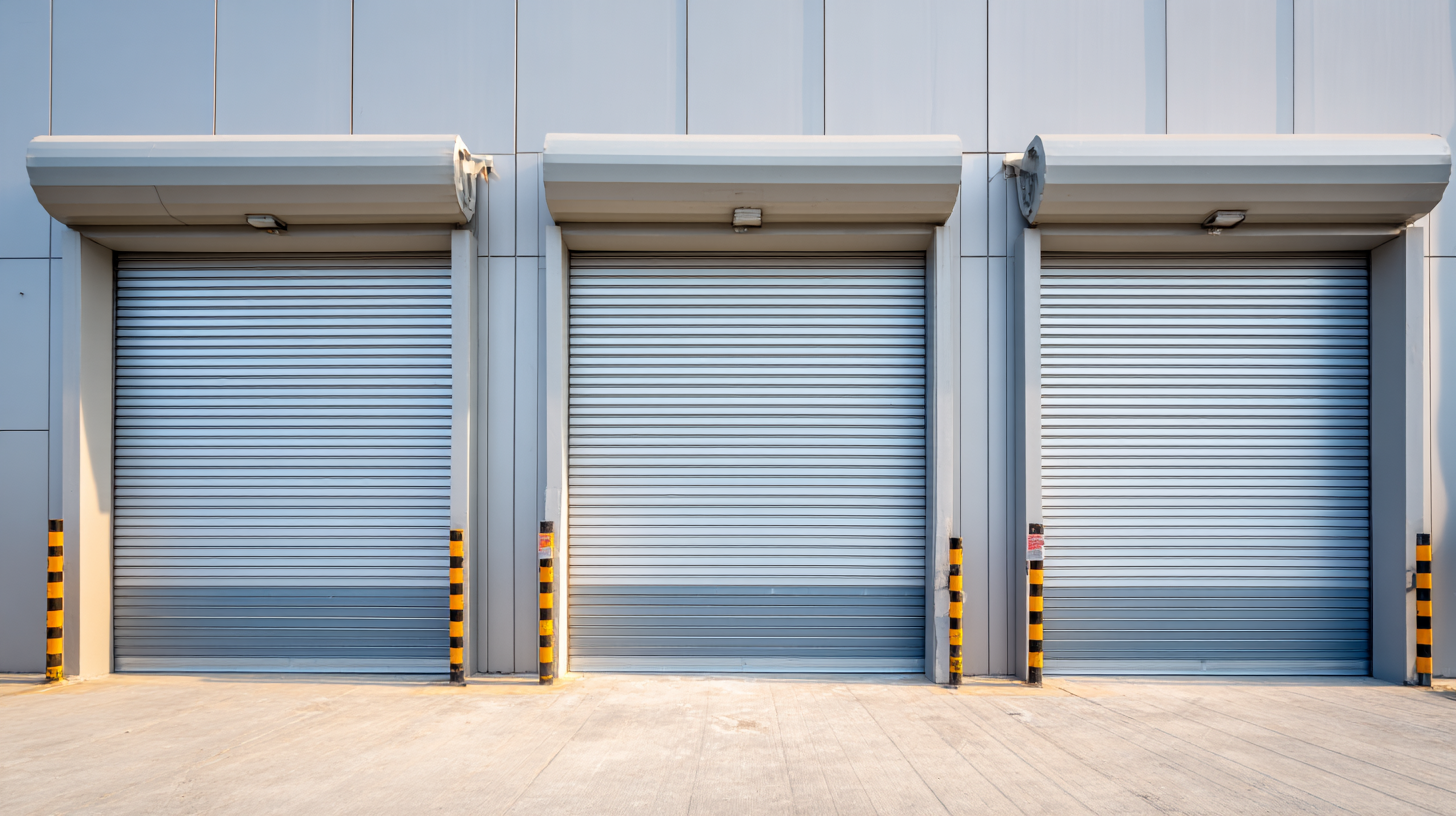 Choosing the right commercial roll up doors is a critical decision that can significantly impact the efficiency and security of your business operations. According to a report by Mordor Intelligence, the global industrial door market is projected to grow at a CAGR of 5.2% from 2021 to 2026, reflecting an increasing demand for durable and high-quality access solutions across various industries. As businesses continue to recognize the importance of energy efficiency and safety, commercial roll up doors have emerged as a popular choice, providing not only functionality but also improved insulation and enhanced security features.
Choosing the right commercial roll up doors is a critical decision that can significantly impact the efficiency and security of your business operations. According to a report by Mordor Intelligence, the global industrial door market is projected to grow at a CAGR of 5.2% from 2021 to 2026, reflecting an increasing demand for durable and high-quality access solutions across various industries. As businesses continue to recognize the importance of energy efficiency and safety, commercial roll up doors have emerged as a popular choice, providing not only functionality but also improved insulation and enhanced security features.
When selecting commercial roll up doors, it is essential to consider various factors, including material, insulation properties, and the specific needs of your business environment. For instance, a study by IBISWorld indicates that the warehouse and storage industry is rapidly evolving, emphasizing the necessity for doors that can withstand heavy usage while facilitating easy access for large vehicles. Additionally, with advancements in technology, newer models of commercial roll up doors now offer smart features such as remote access and automated control systems, which further enhance operational efficiency. Understanding these trends and making informed choices can help businesses invest in the best solutions tailored to their operational requirements.
Understanding Different Types of Commercial Roll Up Doors for Various Business Needs
When it comes to choosing the right commercial roll-up doors for your business, understanding the various types available is essential to meeting your specific needs. Commercial roll-up doors come in several varieties, including insulated, non-insulated, and fire-rated options. Insulated doors are ideal for businesses that require energy efficiency and temperature control, making them perfect for warehouses or refrigerated facilities. Non-insulated doors, on the other hand, are suited for service areas where temperature control is not a priority, providing a cost-effective solution for high-traffic zones.
**Tip:** Evaluate your business's operational needs before making a decision. Consider factors like climate control, security, and frequency of use to determine which type of roll-up door will serve you best.
Another important factor is the material of the roll-up door. Steel doors offer superior security and durability for high-risk areas, while aluminum doors can provide a lighter option without sacrificing longevity. For businesses that prioritize aesthetics alongside functionality, fiberglass doors can offer a modern look without compromising insulation.
**Tip:** Prioritize safety features such as automatic locking mechanisms or impact-resistant materials to ensure the well-being of your staff and assets.
Key Factors to Consider When Choosing Commercial Roll Up Doors
When selecting commercial roll-up doors for your business, several key factors come into play that can significantly impact your operations and bottom line. One critical aspect is the material of the door. According to a report by the Door & Access Systems Manufacturer Association (DASMA), steel doors offer superior durability and security, with nearly 70% of businesses opting for them over aluminum or fiberglass options. This choice not only enhances safety but also reduces long-term maintenance costs, as steel doors can withstand harsh weather conditions and frequent usage.
Another essential factor to consider is the door's insulation properties. The U.S. Department of Energy notes that up to 30% of a commercial building’s energy loss can occur through uninsulated doors. Therefore, selecting a door with effective insulation can drastically cut heating and cooling expenses—potentially saving businesses up to 20% on energy bills. When evaluating roll-up doors, look for options that provide high thermal resistance ratings (R-values), as these will ensure better energy efficiency and comfort in your operational environment. Engaging with a knowledgeable supplier can help you navigate these choices, ensuring a door that aligns with your business needs and sustainability goals.
The Ultimate Guide to Choosing the Right Commercial Roll Up Doors for Your Business
Material Options for Roll Up Doors: Which is Best for Your Business?
When selecting commercial roll-up doors for your business, the material options are crucial in determining the effectiveness, durability, and overall suitability for your specific needs. Common materials for roll-up doors include steel, aluminum, and vinyl, each offering unique benefits tailored to different environments. According to a report by the Door and Access Systems Manufacturers Association International (DASMA), steel doors are favored for their strength and security, making them ideal for warehouses and industrial applications, where they can withstand harsh conditions.
On the other hand, aluminum doors provide a lightweight yet durable option. They are often recommended for businesses that require visibility and aesthetics, such as retail storefronts, due to their ability to incorporate glass panels without sacrificing structural integrity. A study published by the International Door Association indicates that aluminum roll-up doors can lead to up to 30% energy savings in temperature-controlled environments, contributing to reduced operational costs. Vinyl doors, while less common, offer excellent corrosion resistance and are typically used in food service applications where hygiene is paramount. Understanding these material options helps businesses make informed choices that align with their operational demands and budget constraints.
Evaluating Energy Efficiency and Insulation in Roll Up Door Choices
When selecting commercial roll-up doors, energy efficiency and insulation should be top priorities. According to the U.S. Department of Energy, properly insulated doors can significantly reduce energy consumption, keeping heating and cooling costs down. In fact, insulated roll-up doors can achieve up to a 50% reduction in energy loss compared to non-insulated alternatives. This is particularly important for businesses operating in climates with extreme temperatures, where inadequate insulation can lead to considerable increases in energy expenses.
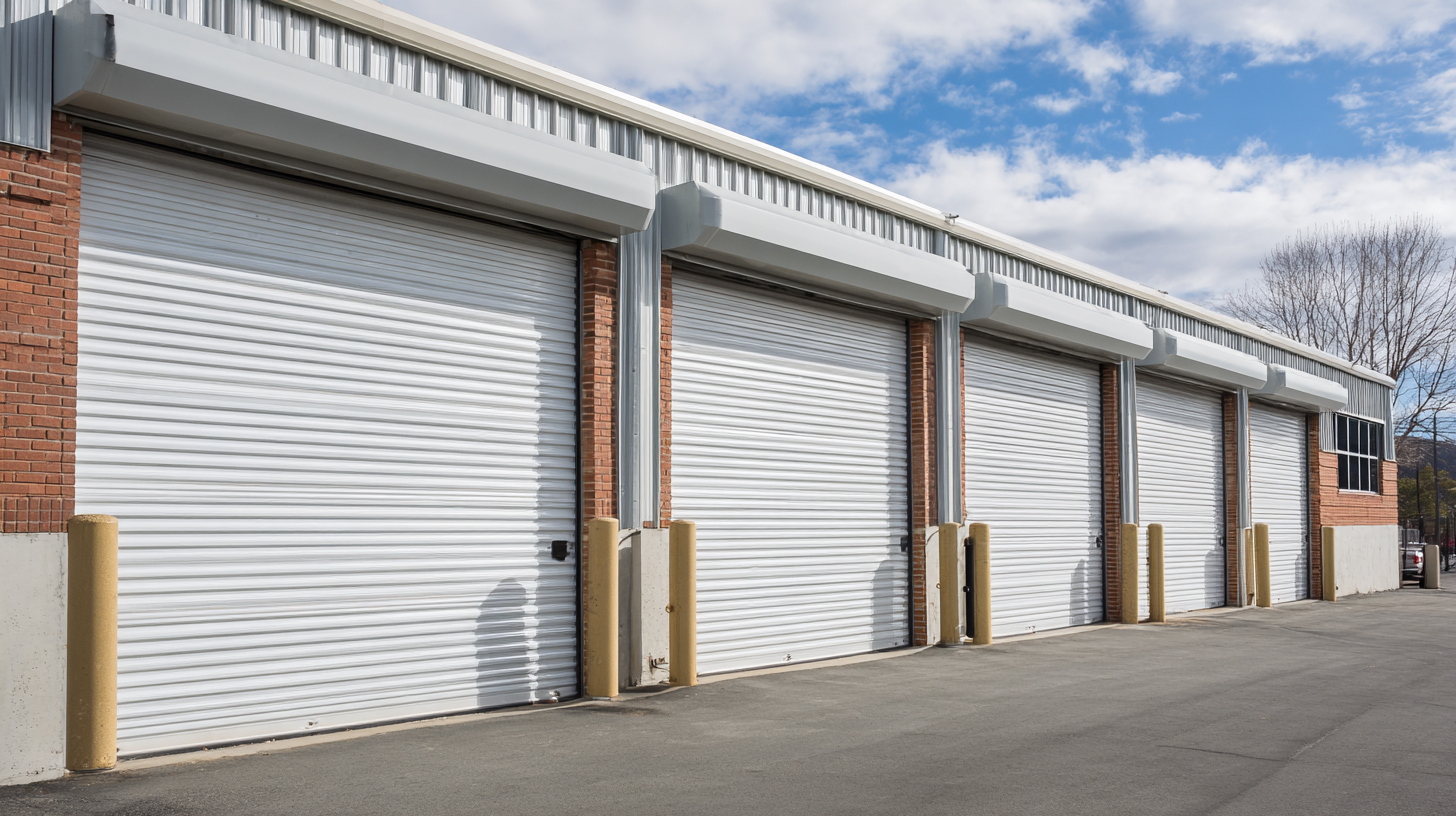
Moreover, the type of insulation material used in roll-up doors greatly affects their performance. For example, polyurethane-insulated doors have been shown to deliver a higher R-value—up to 16 when compared to polystyrene options—which translates to better thermal resistance. The choice of insulation not only impacts energy consumption but also enhances the overall durability and maintenance requirements of the doors. By investing in high-quality, energy-efficient roll-up doors, businesses can secure long-term savings while contributing to their sustainability goals.
Maintenance Tips for Ensuring Longevity of Your Roll Up Doors
When it comes to ensuring the longevity of your commercial roll-up doors, consistent maintenance is crucial. According to the National Institute of Standards and Technology (NIST), regular inspections can increase the lifespan of industrial doors by up to 40%. This not only maximizes your investment but also minimizes the risk of unexpected breakdowns that can disrupt operations. Key maintenance practices include lubricating moving parts, checking for proper alignment, and ensuring that the door's seals are intact to prevent energy loss and improve insulation.
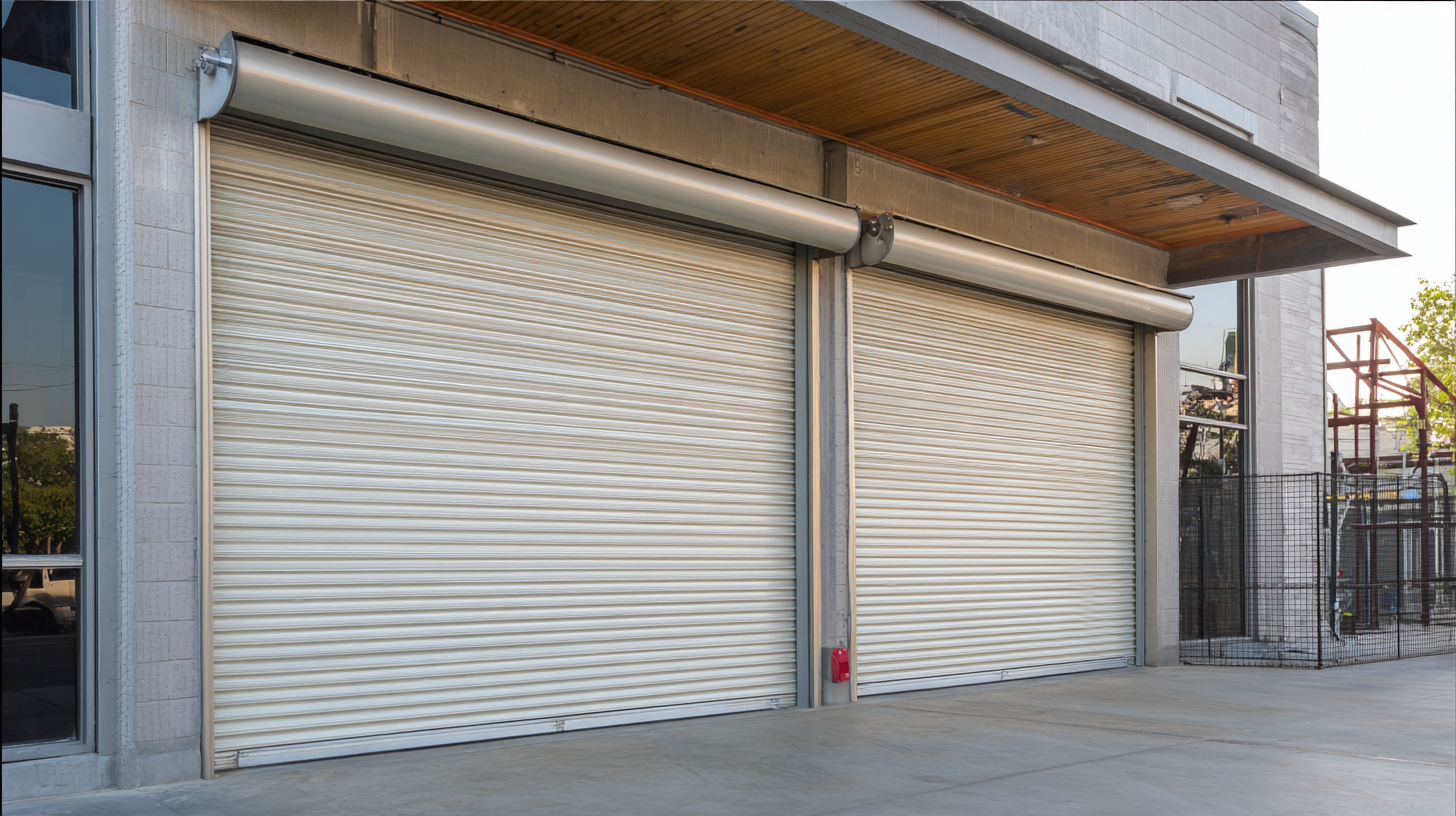
Additionally, a report by the Door and Access Systems Manufacturers Association (DASMA) suggests that routine cleaning and the timely replacement of worn components can lead to significant cost savings over time. For instance, replacing rollers and springs before they fail can prevent more extensive damage to the door system, which often involves costly repairs or complete door replacement. By adhering to these maintenance tips and being proactive, businesses can significantly enhance the operational efficiency of their roll-up doors while avoiding premature wear and tear.
Related Posts
-
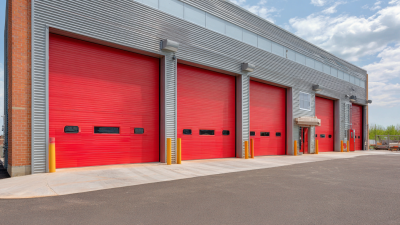
7 Secrets to Choosing the Best Commercial Overhead Doors for Your Business
-
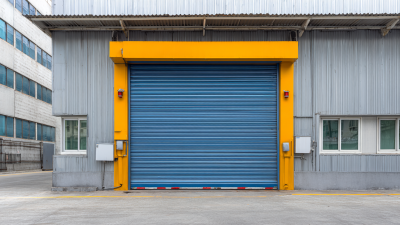
How to Choose the Right Commercial Garage Doors for Your Business Needs
-
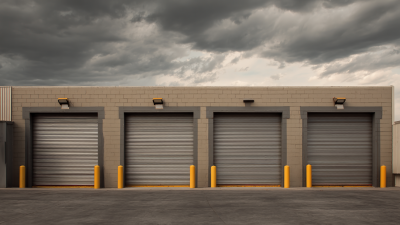
Understanding the Benefits of Commercial Overhead Doors: Enhancing Security and Efficiency for Businesses
-

The Ultimate Guide to Choosing the Perfect Double Garage Door for Your Home
-
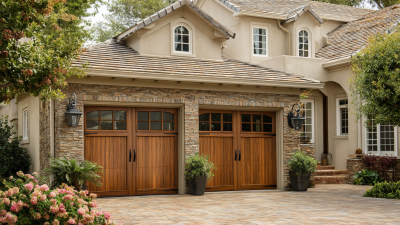
Exploring Innovative Garage Door Options at the 2025 China Import and Export Fair: Market Insights and Trends
-
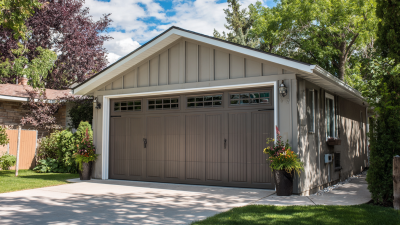
How to Choose the Perfect Aluminum Garage Door for Your Home
